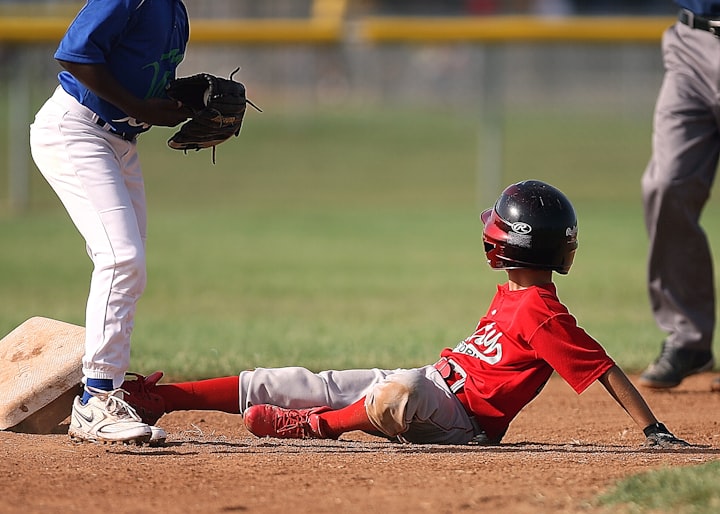Stop the Cheating In Youth Sports!
Parents, coaches and even high-profile athletes are constantly blurring the lines between gamesmanship and outright cheating. It's time to change that trend.

When Major League Baseball found the Houston Astros guilty of using modern technology and banging trash cans to steal signs during the 2017 season, it created a firestorm throughout all of sports. One school of thought claimed the team was just taking advantage of resources available to get an edge. Many others believed the scandal was a black eye on the game, and the team should have its World Series championship stripped from them.
The urge to win is like a powerful drug; once you get a taste of it, you can’t get enough. Unfortunately, youth sports is not immune to this way of thinking. The expectations placed on kids from T-ball to the high school level can be overwhelming.
The tragedy is when those high expectations lead many players to sacrifice sportsmanship and ethics to satisfy the desires of someone else.
As John O’Sullivan, head of the nonprofit group Changing the Game Project pointed out in a 2014 blog post, there are clear definitions of stepping over the line. Performance-enhancing drugs, knowingly using illegal players, and deliberately attempting to injure opponents are clear examples of cheating to achieve a desired result.
In other situations, the line isn’t always easy to distinguish. But there are ways young athletes can learn the difference and still succeed.
***
Set a Good Example
As a coach or parent, you are the model athletes will pattern themselves after. O’Sullivan quotes Dr. Ron Quinn, a professor of sports ethics at Xavier University, in making this point.
“Once they learn how important the game is to adults, they will learn how to cheat,” Quinn says.
In other words, kids will follow your lead. If authority figures constantly encourage them to break a rule, they’ll believe there are no consequences. Instead, they should be encouraged to develop as individuals, have fun, and give their best possible effort. Success will usually follow.
Understand the Consequences
When one person breaks a rule, it affects the entire team. Sometimes, it can even result in the removal of an award, such as a championship. Ultimately, the entire team has to endure the shame that follows.
There are many examples of this, including the use of illegal players at the Little League World Series. In some of those cases, the offending team had to forfeit its titles or finishes, disgracing the players who had little to do with the infraction.
Know the Rules

It’s important for coaches and parents to be familiar with the rules of the league or organization they are playing for, whether it’s equipment and field specifications or rules of conduct.
Ignorance is no excuse for breaking a law in everyday life. The same applies to sports. If a rule isn’t clear, ask an official or league representative.
Don’t Take the Shortcuts
It’s tempting to cut corners to get ahead. TrueSport, an organization that provides resources for coaches, parents and athletes, encourages teaching kids to win in the spirit of the game. It’s OK to value winning, but do so for the sheer enjoyment of the experience, rather than because it makes someone else happy.
Athletes who develop the habit of taking shortcuts to achieve a goal become more focused on external rewards such as trophies, medals or praise. They should learn to outplay their opponent by focusing on individual skill development, staying fit, and even being willing to lose in order to win the right way.
Allow Players to Make Mistakes
Sports psychologist Dr. Andrew Jacobs says athletes often feel the need to cheat because they’re afraid to fail. The phrase, “failure is not an option” is frequently used to motivate players. It doesn’t take long for kids to pick up on that mentality.
“Everyone fails in life, not just in sports,” Dr. Jacobs explains. “If we can teach kids to not be afraid to fail and learn from their mistakes, they won’t feel the need to cheat.”
Coaches and parents should introduce this philosophy at an early age. If players have the room to fail without fear of letting others down, the desire to step outside the boundaries of sportsmanship will be less tempting.
Don’t Always Follow the Crowd

Kids often use the phrase, “but everyone else does it”, when they get caught doing something wrong. Adults send a similar message when they break a rule. It’s become harder than ever to instruct children to be fair when they see people they look up to seemingly go unpunished. But it’s important to help them understand that you’re only one infraction away from getting caught, and it usually happens at some point.
***
The practice of cheating to get an edge will never completely disappear. It’s human nature. When kids watch others break the rules or feel pressure to do so themselves, they will naturally follow suit.
The good news is there are leaders who approach their sport with fairness and integrity. Following their example will go a long way in changing the culture of cheating at every level.
About the Creator
Stephen Michael Kerr
Stephen has covered sports as a journalist for over 30 years. His passion for creating a better sports environment for kids led him to devote his full attention to tackling issues facing youth sports. Follow him on Twitter: @smkwriter1






Comments
There are no comments for this story
Be the first to respond and start the conversation.